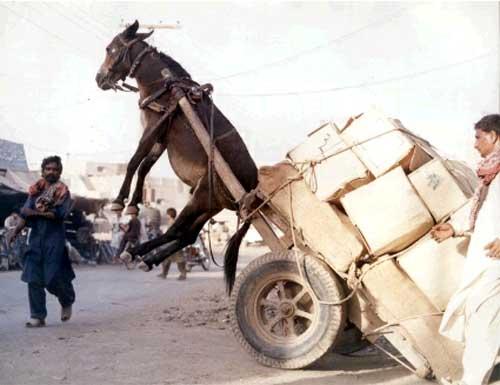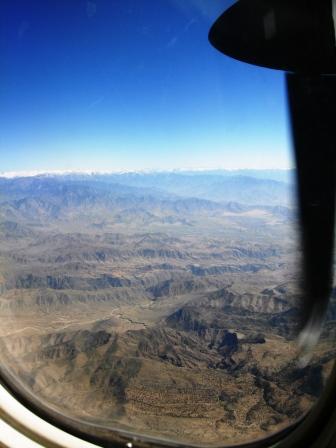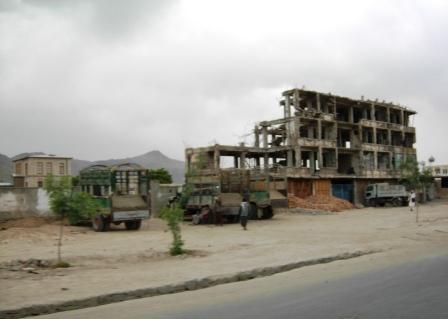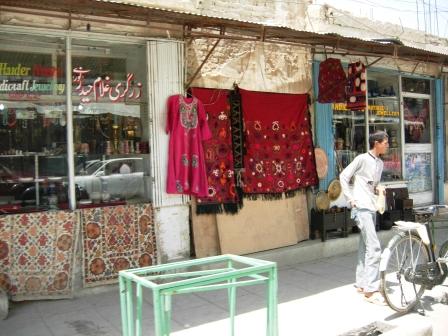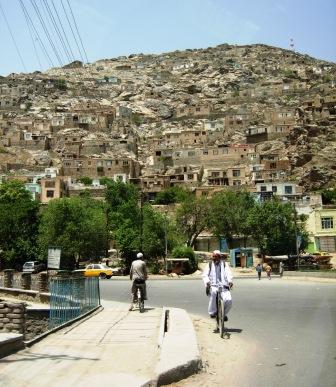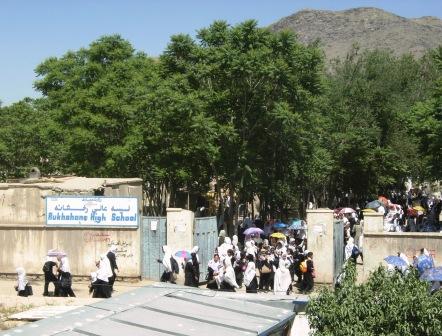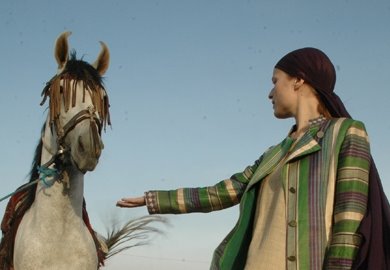Kabul's iron chefs
When we wake up the next morning, Mary has left us a note next to the coffee maker: "Anja and Oren--I invited the Canadian ambassador to join us for dinner. Menu?" Like that, our little get-together just turned into a dinner featuring a former parliamentarian and the ambassador of a fairly important country. This became clear when two camouflaged security guys, sporting bullet-proof vests and huge guns, show up to give our house a firm-fisted thumbs up.
We make the interesting trip out to the PX--a heavily fortified supermarket, armed by Nato troops, where you need a non-Afghan passport to get in. That place is a blog post in and of itself, but to give you an idea, I'll just say that they sell shotglasses that say "Operation Enduring Freedom, Afghanistan." We buy some very expensive fish, cheese, and ice cream and some very cheap whisky and wine.
Oren spend the afternoon wondering whether it's appropriate for him to handle food, considering the plethora of parasites the German doctor found living in his stomach, while I decide on the menu. Broiled cod with herb-roasted new potatoes and a butter-lemon sauce. We start cooking, all seems to go smoothly, until all of a sudden the electricity goes off. It turns out our generator isn't powerful enough to support the oven.
So, the ambassador is on his way, and in our kitchen there is raw fish and potatoes. Without electricity, what to do? Oh yes, fry things on the countertop gas range. We find two old, rusty frying pans, and use up half a bottle of oil trying to make things not stick too badly. Meanwhile, the ambassador arrives. He's got a very formal air about him, leading me to lose my mind for a few seconds in anticipated embarrassment over what we're about to serve him.
Anyways, in the end, what we put on the table in front of our guests were plates of something that looked like day-old fish and chips. To my surprise, they all liked it. The ambassador even said that it was good to have a real home-cooked meal for a change.
